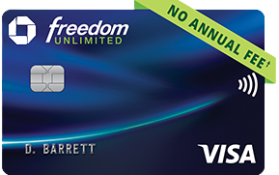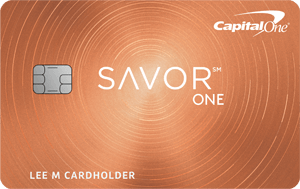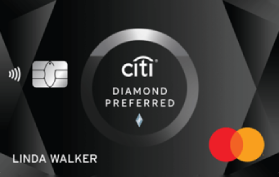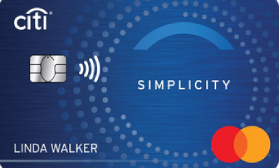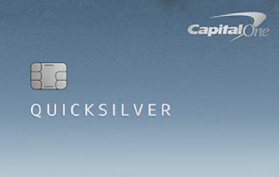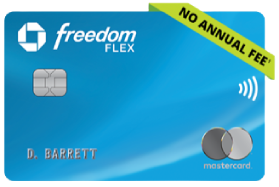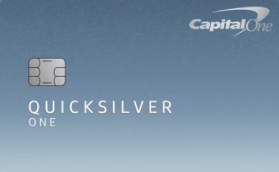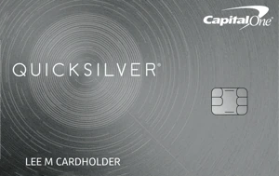Short Review of Best Credit Cards for Medical Expenses
| Name | Best for | Rewards Rate | APR | Apply |
|---|
Upgrade Cash Rewards Visa® | Good credit score | 1.5% Cash Back on payments. | 14.99% - 29.99% Regular | Apply now On Upgrade‘s website |
Upgrade Triple Cash Rewards Visa® | Low income | 3% Cash Back on Home, Auto and Health categories.1% Cash Back on everything else. | 14.99% - 29.99% Regular | Apply now On Upgrade‘s website |
| Cash Back, 0 APR, No Annual Fee, Daily use | 5% Cash Back on travel purchased through Chase Ultimate Rewards.3% Cash back on dining at restaurants, including takeout and eligible delivery services.3% Cash Back on drugstore purchases.1.5% Cash Back on all other purchases. | 18.99% - 28.49% Variable | Learn more |
Capital One SavorOne Cash Rewards Credit Card | Cash Back, 0 APR, No Annual Fee, Restaurants, Entertainment, Daily use | 5% Cash Back on hotels and rental cars booked through Capital One Travel.1% Cash Back on all other purchases.3% Cash Back on dining, entertainment, popular streaming services and at grocery stores. | 19.99% - 29.99% Variable | Learn more |
| 0 APR, No Annual Fee | This card doesn't offer cash back, miles or points. | 17.24% - 27.99% Variable | Learn more |
| 0 APR, Single mom | This card doesn't offer cash back, miles or points. | 18.24% - 28.99% Variable | Learn more |
Capital One Quicksilver Cash Rewards Credit Card | Cash Back, No Annual Fee, Daily use | 5% Cash Back on hotels and rental cars booked through Capital One Travel.1.5% Cash Back on every purchase. | 19.99% - 29.99% Variable | Learn more |
| Cash Back, 0 APR, No Annual Fee, Daily use | 5% Cash Back on up to $1,500 on combined purchases in bonus categories each quarter you activate.5% Cash Back on travel purchased through Chase Ultimate Rewards.3% Cash Back on dining at restaurants, including takeout and eligible delivery services.3% Cash Back on drugstore purchases.1% Cash Back on all other purchases. | 18.99% - 28.49% Variable | Learn more |
Card's description:
Chase Freedom Unlimited®
When you open an account with Chase Freedom Unlimited® Credit Card, you will earn a $200 bonus after spending $500 on purchases within the first three months. Plus, you'll also enjoy 5% cash back on your purchases at eligible grocery stores up to $12,000 in spendings during the first year. Afterward, standard cash back rates will apply at 3% on dining, 5% on travel through Chase Ultimate Rewards, and 1.5% on all other purchases. You will also earn 3% cash back on purchases at drugstores, making it a great credit card to pay for your medications. In addition, 0% intro APR on purchases and balance transfers for 15 months (18.99% - 28.49% variable after that) can help you spread payments for large medical bills. Plus, there’s no annual fee, making it cost-free to maintain.
Read more about Chase Freedom Unlimited®
Capital One SavorOne Cash Rewards Credit Card
The Capital One SavorOne credit card offers unlimited 3% cash back on entertainment, dining, popular streaming services and at grocery stores, and 1% on other purchases. In addition, the SavorOne card offers 0% APR on purchases and transfers for 15 months from account opening (after that, your APR will be 19.99% - 29.99%), providing the chance for easy payment terms on your medical expenses. Furthermore, the card has no foreign transaction fees and no annual fee.
Read more about Capital One SavorOne Cash Rewards Credit Card
Citi Diamond Preferred®
If you need a break from paying high interest on your outstanding balance from your medical bills, the Citi Diamond Preferred® Card has a way out for you by offering 0% APR on balance transfers for 21 months. The 0% APR for 12 months applies to purchases, so you can pay medical bills and have some relief paying off your debt without interest. After 12 months (for purchases and 21 months for balance transfers), the standard rate applies for as low as 17.24% - 27.99% APR, based on your creditworthiness. The Citi Diamond Preferred® credit card charges no annual fee and has a digital wallet for quick checkouts during shopping.
Read more about Citi Diamond Preferred®
Citi Simplicity®
Just like the Citi Diamond Preferred® card, the Citi Simplicity® Card also offers 0% APR for 12 months on purchases and 21 months on balance transfers that could help ease the burden of medical bills. Digital wallets are available for convenience and faster checkouts. While both cards may have almost similar offers, the Citi Simplicity® Card is more lenient on late payments with the potential for waived fees. However, the Citi Simplicity® also has a higher variable APR range, starting from 18.24% - 28.99%. So, if you’re tight on budget and sometimes you miss a payment, the Citi Simplicity® would be the ideal one to choose. But you must also keep in mind that late payments can affect your credit score.
Read more about Citi Simplicity®
Capital One Quicksilver Cash Rewards Credit Card
Another card on our list with 0% introductory APR for purchases and transfers (19.99% - 29.99% after that). You will have up to 15 months to pay off your medical bills with no interest. A straightforward rewards system is offered by the Capital One Quicksilver Cash Rewards card. There’s no need to bother about categories because all purchases will earn 1.5% cash back without limit. Plus, it’s maintenance-free with no annual fee, and you can enjoy shopping outside of the USA with zero foreign transaction fees. You can redeem rewards at any amount, anytime, and the rewards will not expire for the life of the card.
Read more about Capital One Quicksilver Cash Rewards Credit Card
Chase Freedom Flex℠
The Chase Freedom Flex℠ credit card is another excellent credit card for easing your payments on medical billing. The 0% APR on purchases and transfers for 15 months (18.99% - 28.49% Variable after) lets you defer your recent medical expenses for an extended period without interest. You will also enjoy cash back rewards, such as 3% on drugstore purchases and dining. Other purchases will earn 1% cash back. The rewards will not expire as long as the account remains active and there’s no annual fee to worry about.
Read more about Chase Freedom Flex℠
What is a medical credit card?
A medical credit card can help you pay for eligible healthcare, medical, veterinary, and dental expenses where insurance or your savings could not cover. You can use them to pay for medical expenses and consultations with healthcare practitioners like physicians, dentists, audiologists, ophthalmologists, cosmetic surgeons, and veterinarians.

Some medical credit cards have healthcare financing options, offering a solution to easing the burden of surmounting medical bills. For example, Wells Fargo Health Advantage® Card has patient benefits that offer financing plans, and it has a revolving line of credit for patients to use over and over again.
Also, other medical credit cards have veterinary features. For example, CareCredit has PetCare, comprehensive pet insurance where you can get reimbursements on eligible veterinary bills when your pet gets sick. So, there are unique features that set medical credit cards apart from general credit cards.
Who qualifies for medical credit cards?
Qualification requirements for applicants of medical credit cards may vary according to the guidelines of the credit card companies. But generally, those with good credit score have higher chances of getting approval. Usually, applications for medical cards are available at the doctors’ offices, which would be a good start since you will have better assurance that your physician will accept such credit cards for payments. Fresh college graduates, students, and those without credit history may still apply. But sometimes, a cosigner with a good credit score may be required to get approval.
How to choose the best card to pay for medical expenses?
By looking at the card’s features, you can determine if your credit card can pay for your medical expenses. Depending on your situation, you might want to pay your medical bills with a regular credit card or a medical credit card.
Most healthcare providers accept Visa® or Mastercard®, offering the chance to use your general credit card to settle your medical bills. While choosing the card to pay with, consider if your medical bills are recurring or one-time. If you have to buy prescription medication regularly, look at credit cards with higher rewards rates on drugstore purchases, like Chase Freedom Unlimited® or Bank of America Cash Rewards.
For more considerable medical expenses, like surgical procedures or dental visits, you want to pay for your medical bills during the intro 0% APR period on purchases, so you have more time to pay them off with no interest. Additionally, you can use any credit card for medical expenses and then transfer the balance to another credit card with 0% APR on balance transfers.

An excellent example would be the US bank Visa® Platinum Card, which offers 0% APR on balance transfers for 20 billing cycles (18.74% - 29.74% Variable thereafter).
If a regular credit card doesn’t work for you, look for the medical one with more comprehensive medical features, such as health care financing plans and veterinary coverage if you have pets.

For example, CareCredit has plenty of healthcare financing options, from primary care, dentistry, chiropractic, cosmetic, fitness, surgical procedures, medicines and pharmacy, medical equipment and supplies, laboratories and diagnostics, and weight loss, to animal and pet care.
So, choosing an ideal card requires a thorough analysis of your current needs. Whether you need to manage existing medical debt, pay off current medical expenses, or buy medications will play a primary role in choosing the best credit card.
Potential risks of paying a medical bill with a credit card
Credit cards may offer an option for paying off substantial medical bills. But there are also downsides to be attentive about. If you opt to settle your medical bills using your credit card, it will likely increase the debt-to-credit ratio and lower your credit score.
There are also potential consequences if you choose to pay off your medical bills with zero interest for a certain number of months. Failure to pay in full within the intro period will result in payment of excessive interest built up since the time of the original charge.

CareCredit, for example, offers a financing plan for medical expenses at 0% interest for 12 months. But if you fail to pay the balance in full within the promotional period, they will charge applicable interest to your account from the date of purchase.
Alternatives to credit cards
You might want to consider some alternatives to paying medical bills with credit cards, such as medical loans, medical financial assistance programs, or simply negotiating for your medical bills. You may also make use of the financial programs of hospitals and clinics. For example, UI Health Care of University of Iowa Hospitals & Clinics offers financial assistance programs for patients who are unable to pay for their medical expenses. So, if you look around for opportunities, you'll find some alternatives to medical credit cards.
Is a medical credit card right for me?
A medical credit card could be right for you if you have problems paying cash for your medical bills. It’s also a good choice if you want to spread your payments for several months at no interest to ease your medical debt burden. For example, Wells Fargo Health Advantage® Card and CareCredit have financing plans for hospital bills and drugstore purchases, giving you the chance to settle your bills over time at no interest. Also, if you have pets and you’re looking for a pet healthcare plan, a medical credit could be right for you. However, general credit cards, like Chase Freedom Unlimited®, might be a better choice in many circumstances. With a higher reward rate for drugstore purchases, 0% intro APR for purchases and balance transfers, and no annual fee, this card is a well-balanced option for medical expenses and everyday use.
FAQ
What are other credit cards to consider?
To pay for your medical expenses, you can consider balance transfer credit cards like the Citi Double Cash Card or cards that offer a 0% APR introductory period on purchases, such as Blue Cash Everyday® Card from American Express®.
Can I pay medical bills with a credit card?
Most major medical providers will accept credit card payments. However, it is best to check the fine prints of the medical bill to have a better understanding beforehand with regards to how far a credit card covers medical expenses.
Can I pay for health insurance with a credit card?
The use of credit cards as a payment method for health insurance premiums is a choice by health insurance providers. Most major insurance companies, such as Aetna, Cigna, Humana, Health Net, Anthem, Blue Cross Blue Shield, Well Care, and United Healthcare, have credit cards as a payment option. Before you get a health insurance plan, check if they accept the type of credit card you have in mind as your preferred mode of payment.





